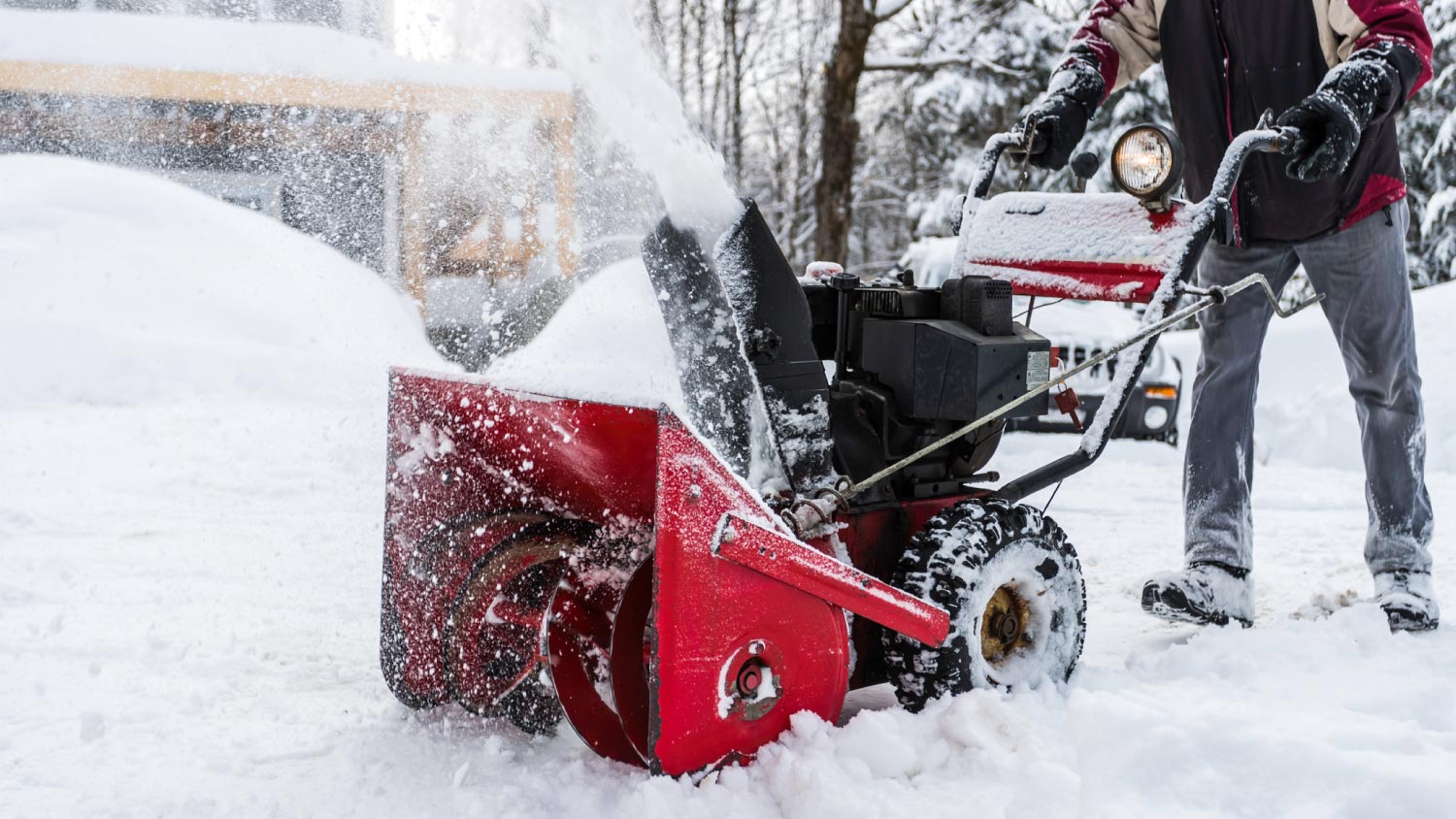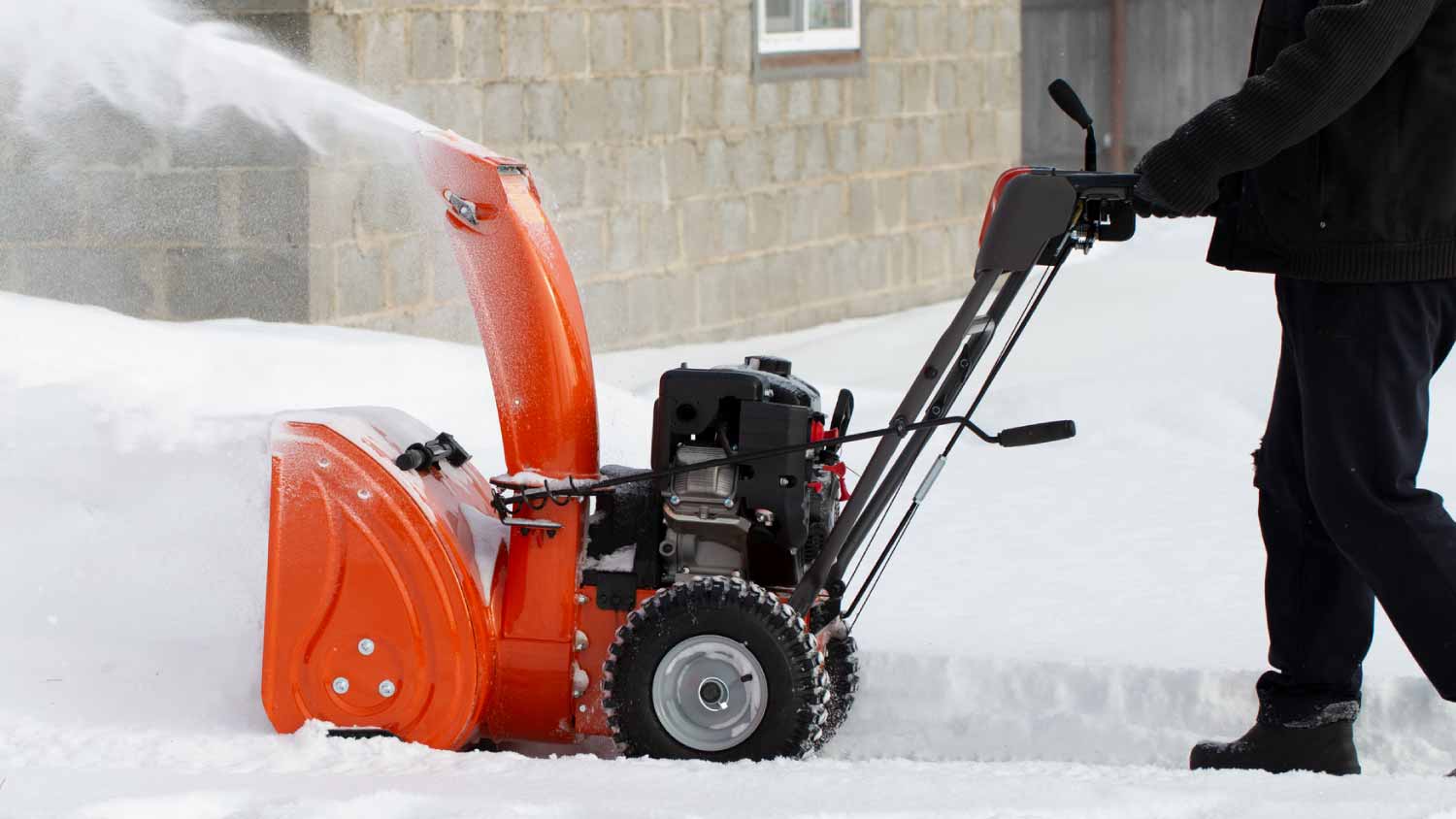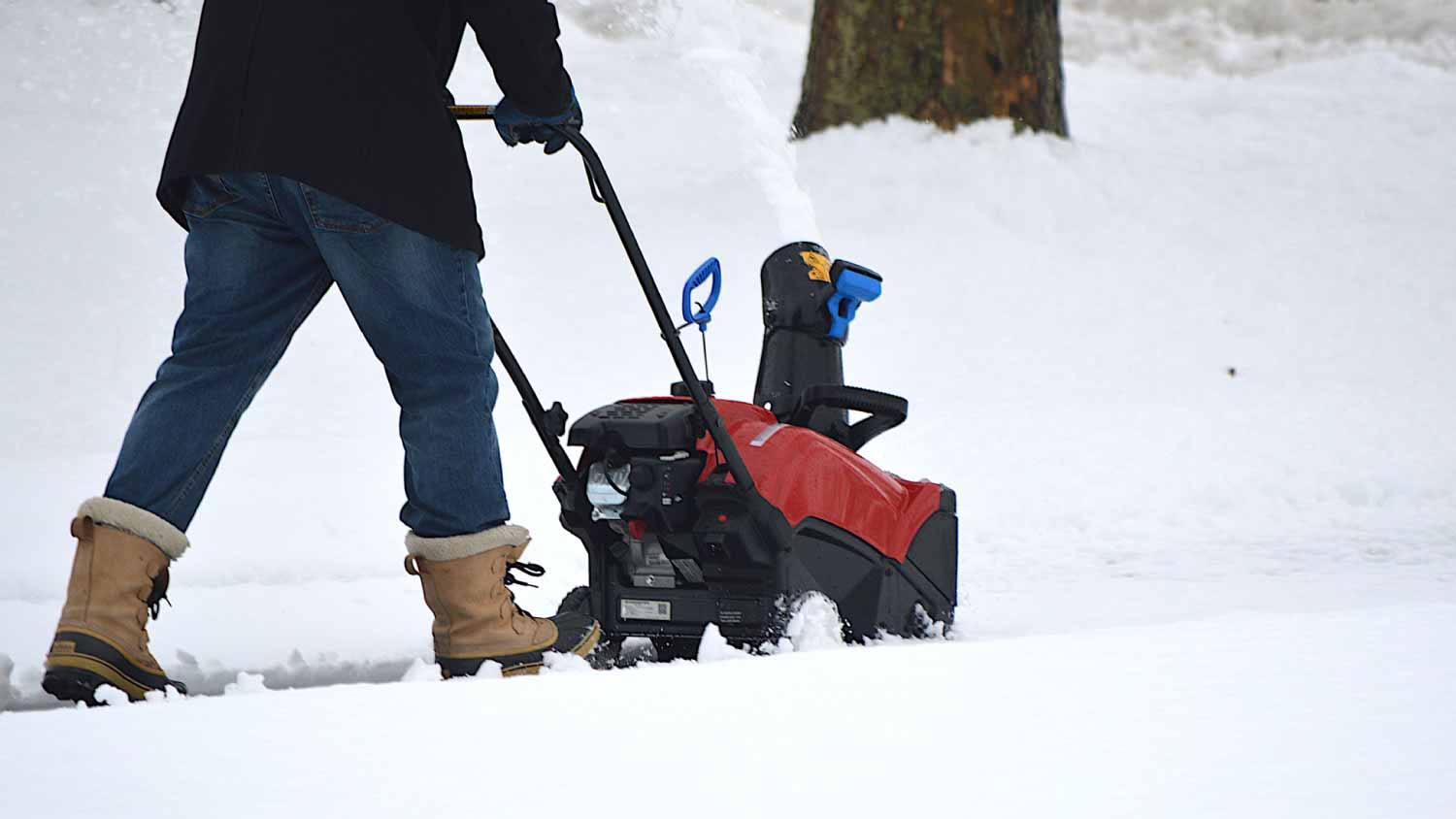
Get the latest snow removal cost estimates, including average prices, key cost factors, and tips to help homeowners budget for safe, efficient snow removal.
Brace yourself for this epic battle of the blower


Gas snow blowers provide power and durability, while electric blowers are more environmentally- and budget-friendly.
Gas snow blowers are better suited for large jobs and heavy snowfall.
Electric snow blowers are easier to maintain and make less noise.
Investing in a snow blower can make the dreaded winter task of shoveling snow much more manageable. The question remains: Should you buy a gas snow blower or an electric one? Before purchasing, it’s best to weigh the pros and cons of each type so you can make the best choice for your needs and preferences. Let’s compare gas snow blower vs. electric.
The main difference between a gas snow blower and an electric snow blower is the type of energy source each runs on. Gas snow blowers are powered by gasoline, while electric blowers are powered by a battery pack or an electrical outlet. Gas blowers are more powerful, durable, and suitable for large areas. Electric blowers are quieter, more environmentally-friendly, budget-friendly, and easier to use and maintain. Consider your home’s needs and average snowfall when deciding between these types of snowblowers.

Gas snow blowers use the power of gas fuel to quickly remove snow from areas of your home like the driveway and sidewalks. Gas blowers are built to effortlessly clear large amounts of snow, making them ideal for homeowners who experience harsh winters. While you’ll have to invest in the initial cost of buying the machine and regular maintenance, a gas-powered blower can be worth it, depending on your needs.
| Pros | Cons |
|---|---|
| Powerful and durable | Not eco-friendly |
| Ideal for large areas without electrical outlets | Noisy |
| Can clear greater amounts of snow | Requires regular maintenance |
Best for:
Harsh winters with heavy snowfall
Homeowners with large yards
Those who don’t mind investing in regular maintenance
Consider the advantages of gas snow blowers.
Powerful and durable: Gas blowers are very powerful, highly equipped to handle heavy-duty jobs, and withstand tough weather conditions.
Increased mobility: With a full tank of fuel, gas blowers can run for several hours without the need for a power cord or battery pack. This makes it easy to cover large areas and move around freely.
Greater clearing width: Most gas-powered snow blowers can clear 18 to 36 inches of snow in a single pass.
Consider the disadvantages of gas snow blowers.
Not eco-friendly: While gas blowers are highly effective at clearing large amounts of snow in a short amount of time, they also produce harmful emissions which pollute the air.
Noisy: Gas snow blowers can be very noisy, averaging around 106 decibels. For this reason, they could be a disturbance in quieter neighborhoods.
Requires regular maintenance: You’ll need to maintain your gas blower on a regular basis. Common maintenance tasks include changing the oil, spark plug, air filter, checking the engine, and refueling.

Unlike the traditional gas-powered blower, electric snow blowers use power from a battery pack or an electrical outlet. Electric blowers are ideal for smaller, shorter jobs in areas with winters that aren’t very harsh. Since they’re lightweight and smaller in size, you can use them to remove snow from your driveway and sidewalks, along with areas like a deck or patio that may be hard to access with a gas-powered blower.
| Pros | Cons |
|---|---|
| Less noisy | Limited power |
| Relatively easy to use, maintain, and store | Limited mobility |
| Eco-friendly | May run out of battery quickly |
Best for:
Eco-conscious homeowners
Quick, small jobs
Homeowners seeking a user-friendly blower that doesn’t require much maintenance
Consider the advantages of electric snow blowers.
Less noisy: While electric blowers will still make some noise, they are generally quieter than their gas-powered counterparts.
Easy use and maintenance: Electric blowers often weigh less and don’t require fuel, making them easier to use, maintain, and store.
Eco-friendly: Since electric snow blowers don’t run on gas, zero emissions are produced during use, which benefits the environment.
Consider the disadvantages of electric snow blowers.
Limited power: If you live in an area that receives heavy or very wet snowfall, an electric blower may not be powerful enough to meet your needs. Gas blowers are typically more powerful than electric models.
Limited mobility: Electric blowers that have cords can make it difficult for you to seamlessly remove snow from every part of your driveway, especially if it’s long. You can opt for a battery-powered blower for greater mobility.
Limited battery life: Battery-powered models can be great for moving effortlessly along your driveway, but the battery life has a limit. Be prepared with an extra battery if you decide to buy a battery-powered blower.
Before you decide between electric or gas, consider how each type of blower measures up in the following categories.
Electric snow blowers can cost anywhere from $100 to $2,000 on average, depending on the brand and quality. Gas-powered snow blowers cost more, ranging from $250 and $10,000. Of course, if you don’t want to buy your own blower, you can always hire a snow removal company near you to provide high-quality and fast results.
If you’re looking for a blower that requires very little maintenance, electric blowers are the way to go. The electric varieties have very few parts and don’t contain any liquids. Gas blowers, on the other hand, need regular maintenance to keep them in optimal condition.
While electric blowers are often perfect for small clean-up jobs in areas with mild to moderate winters, they’re not quite equipped for heavy snowfall. Gas blowers are more ideal for the tougher jobs that require maximum power and durability.
Since electric snow blowers don’t run on gas, they don’t release any harmful emissions into the air which makes them very eco-friendly. However, gas blowers are responsible for releasing large amounts of carbon monoxide into the environment.
From average costs to expert advice, get all the answers you need to get your job done.

Get the latest snow removal cost estimates, including average prices, key cost factors, and tips to help homeowners budget for safe, efficient snow removal.

Discover the cost to install snow guards. Learn about average prices, key cost factors, and tips to save on your snow guard installation project.

Snow throwers and snow blowers are often named interchangeably, but they aren’t the same. Learn the main differences between a snow thrower vs. snow blower.

Snow blowers and power brushes are effective for different applications. Find out the key differences and benefits of a snow blower vs. power brush.

Knowing what to put on an icy sidewalk is just part of the battle when the temperature drops. Here are more tips for an ice-free walk.

Is rock salt poisonous? What is the best rock salt skin irritation treatment? Here’s what you need to know to safely remove ice with rock salt.